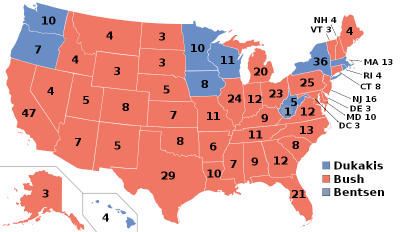Posted on
วันพฤหัสบดีที่ 6 พฤษภาคม พ.ศ. 2553 |

Birth Name: George Herbert Walker Bush
In Office: January 20, 1989 – January 20, 1993
Date of Birth: June 12, 1924
Father: Prescott S. Bush - Wealthy businessman and Senator
Mother: Dorothy Walker Bush
Siblings: Three brothers - Prescott Bush, Jonathan Bush, and William "Buck" Bush and one sister - Nancy Ellis
Wife: Barbara Pierce
Children: Four sons and one daughter - George W. Bush: 43rd President of the U.S.; John F. "Jeb" Bush - Governor of Florida; Neil M. Bush; Marvin P. Bush; Dorothy W. "Doro" Bush.
Place of Birth: Milton, Massachusetts
Political Party: Republican
Offices Held: Member of U.S. House of Representatives, 1967-71;
U.S. Ambassador to the United Nations, 1971-72; Director of the
Central Intelligence Agency, 1976-77
Military Service: Lieutenant and Pilot in the Navy in World War II
- When he turned 18 and has just graduated from Phillips Academy, he became the youngest aviator in the US Navy and served until the end of the war (Pearl Harbor).
- He received the Distinguished Flying Cross, three Air Medals, and the Presidential Unit Citation from his US Navy Career in World War II.
- On January 6, 1945 he married Babara Pierce and they had six children.
- After he was discharged in 1945, he went to Yale and there he graduated as a member of the Phi Beta Kappa in 1948 with a Bachelor of Arts in Economics
- After he had graduated from Yale, he moved his family to Texas where he began to work in the oil business starting off as a sales clerk till then he became the president of an offshore drilling company which made him a billionaire.
- By 1964, he lost to Democratic Senator Ralph Yarborough by a landslide.
- Later in 1966 and 1968, he was elected into the House of Representative from the 7th District of Texas but later he lost his 2nd attempt of winning the Senate seat in 1970 to a Democrat Lloyd Bentsen.













